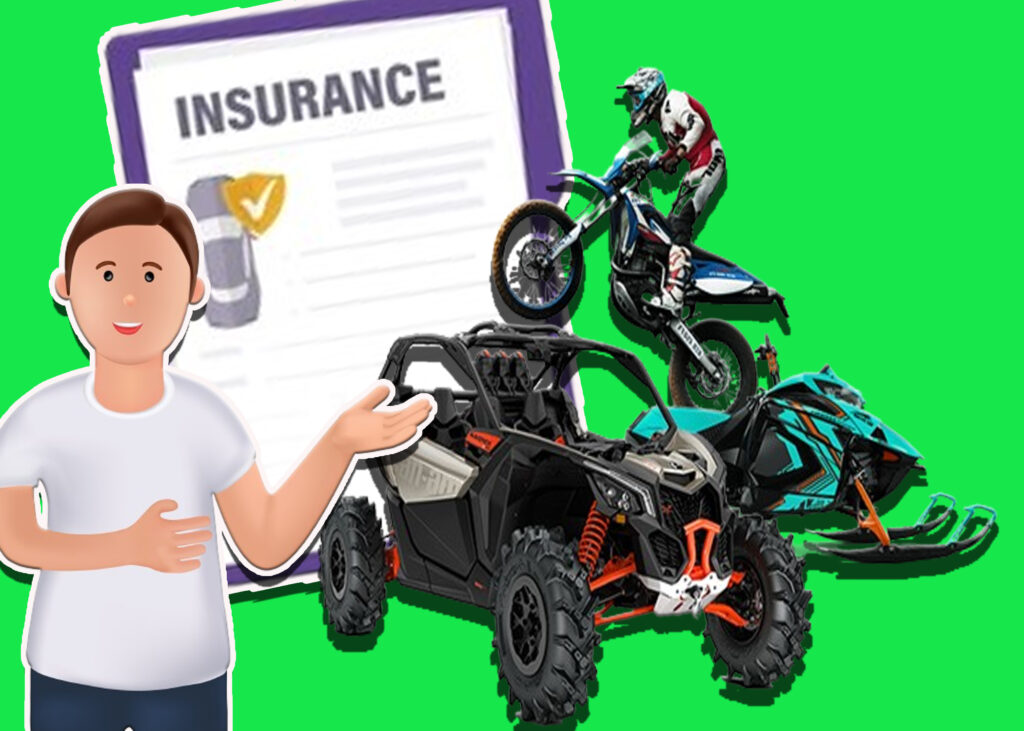Since off-roading is a hazardous activity, your car insurance may not cover you for it. Off-roading is the method of utilizing a vehicle on unknown, natural routes. On such picturesque excursions, people love the excitement and independence they experience.

Driving on routes devoid of concrete near the wilderness is rejuvenating and promotes relaxation. However, off-roading can come with risks, like injuries and car damage. Moreover, you need to be prepared to manage these sorts of unexpected circumstances.
Also, sports based on adventures could be added as an exclusion to the policy by most insurers. However, accidents are covered by auto insurance. To obtain insurance, it is essential to get a comprehensive car insurance.
What is Off-Roading
Vehicles designed to be used in the outdoors are known as off-road vehicles. The consideration may include cars customized for private recreational purposes, such as Jeep Wranglers, Toyota Land Cruisers, or pickup trucks. Carrier-specific designations and coverage options differ, and it’s crucial to realize that a vehicle shouldn’t always travel off-road simply because it can.
Types of Off-Road Vehicles
There are several varieties of off-road driving based on the track’s risk and driving intensity. This is often one of the following types of recreational sports:
- Dune buggies.
- Small motorbikes.
- Mountain cycles.
- Camping trailers.
- All-terrain vehicles (ATVs).
Most automobiles have double objectives being an off-road vehicle and a conventional vehicle. For instance, specific pickup trucks, Jeep models, and Rivian automobiles are sold (in part) due to their off-road potential. Contact your provider to choose the right policy for your car, whether it’s covered by an off-road or auto insurance policy.
What Does Off-Roading Car Insurance Cover
Off-road vehicles may not be covered by conventional auto insurance; therefore, you need to get an extra off-road policy that includes all the necessary coverage, such as:
Liability insurance
You run a higher risk of running into people and damaging property when you drive off-road. Therefore, liability insurance will cover any damages to your belongings and wounds to third parties due to off-roading.
Collision coverage
Off-roading increases the risk of encountering objects like trees and rocks, despite decreasing the chance of collisions with other vehicles. Also, any losses from those collisions will be covered by collision protection.
Bodily injury coverage
Traveling off-road is frequently riskier than traveling on paved highways and country roads. Bodily injury coverage can help cover potential injuries to you and other car occupants in an off-road collision.
Off-road vehicle insurance may cost a little more than standard auto insurance, but if you keep your driving record spotless, your premiums will go down.
Will My Car Insurance Reject Off-Roading Claims
Perhaps. If you drive an automobile not designed for off-road use or racing, such as a Honda Accord or Toyota Camry, you may face claims rejection. However, owning specialized vehicles for off-road use, such as ATVs or snowmobiles, and having off-road insurance can protect you from potential claims.
Ensure you have the appropriate insurance coverage to protect against claims rejection or policy termination. The term “off-road insurance” may not be the same for your firm; some provide ATV/UTV plans separately, while others include off-road coverage in their motorcycle policies.
What Does Off-Roading Car Insurance Not Cover
Off-road car insurance policy has its disadvantages, just like any auto insurance policy. Moreover, most off-road car insurance does not offer certain coverage, except for optional ones that can be overlooked.
Prohibited behavior
Your provider will not cover you if you were involved in any unlawful activity at the time of the incident. Also, off-road street racing, stunt driving, drunk while driving, drugs, and distracted driving activities may result in out-of-pocket damages.
Unauthorized changes made to your off-road vehicle
For off-road drivers, unapproved modifications represent a significant insurance exclusion. Off-road drivers often enjoy modifying their vehicles, which can potentially affect their auto insurance coverage. Many insurers maintain a list of authorized car modifications.
Ensure the modification you wish to make is on the authorized list before changing it. Furthermore, your future claim may be denied if you use huge tires on your all-terrain vehicle or make other unauthorized changes.
Mechanical failure
Your coverage won’t cover you if your off-roading automobile faces some technical damage that isn’t connected to an accident or an insured risk such as water damage. Moreover, off-road drivers should note the payment of repairing bigger engines in this kind of automobile. Emergency funds are essential for situations where off-road vehicle insurance coverage may not be sufficient, making it a wise investment.
General deterioration
Most insurance policies do not cover general wear and tear. Regretfully, even with routine maintenance, some wear and tear is unavoidable. Owing to the challenging driving conditions they encounter, off-road vehicles are particularly prone to wear and tear. Insurance brokers can provide more information on this, but typically, corrosion and interior deterioration are not covered by off-road auto insurance.
Do I Need Off-road Car Insurance
You need to get auto insurance if you wish to legally drive any kind of vehicle. Drivers are required by law to purchase third-party auto insurance, which is the most basic kind of policy. Nevertheless, in the absence of damage, this strategy falls short.
You must get comprehensive car coverage to receive financial protection against a variety of occurrences. This coverage covers car damage from off-roading, such as theft, natural or man-made calamities, fire, total loss, and accidents.
Final Thoughts
Selecting a suitable insurance policy for your residence and car can affect your financial strength and avoid costly repairs. Furthermore, an insurance agent can efficiently research numerous reliable insurance companies to find the most suitable coverage for your needs and budget.

